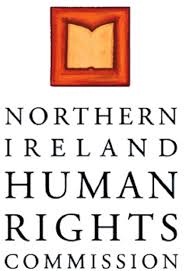By Dr Jane Rooney, Lecturer in Law (University of Bristol Law School).
 In its much-awaited decision on Northern Irish abortion laws, a majority in the UK Supreme Court dismissed the appeal brought by the Northern Ireland Human Rights Commission (the Commission) on the basis that it lacked standing to bring legal proceedings [In the matter of an application by the Northern Ireland Human Rights Commission for Judicial Review [2018] UKSC 27]. Kathryn McNeilly, Fiona Bloomer, and Claire Pierson explain the context and implications of the ruling here. Despite agreement ‘that the current law in Northern Ireland on abortion is disproportionate and incompatible with Article 8 of the [European] Convention’ on Human Rights (see UK Supreme Court press release), the Commission had no standing and therefore the Supreme Court could not make a declaration of incompatibility under section 4 of the Human Rights Act and their statements on rights violations were obiter dicta.
In its much-awaited decision on Northern Irish abortion laws, a majority in the UK Supreme Court dismissed the appeal brought by the Northern Ireland Human Rights Commission (the Commission) on the basis that it lacked standing to bring legal proceedings [In the matter of an application by the Northern Ireland Human Rights Commission for Judicial Review [2018] UKSC 27]. Kathryn McNeilly, Fiona Bloomer, and Claire Pierson explain the context and implications of the ruling here. Despite agreement ‘that the current law in Northern Ireland on abortion is disproportionate and incompatible with Article 8 of the [European] Convention’ on Human Rights (see UK Supreme Court press release), the Commission had no standing and therefore the Supreme Court could not make a declaration of incompatibility under section 4 of the Human Rights Act and their statements on rights violations were obiter dicta.
This blog considers the Supreme Court’s adjudication on standing. It argues for a literal interpretation of the Northern Ireland Act 1998 and Human Rights Act 1998 (HRA) to argue that, contrary to the UK Supreme Court’s majority judgment, the Commission is empowered under the Northern Ireland Act to bring proceedings in cases of an unlawful act of a public authority and for review of the compatibility of Northern Irish primary legislation with the European Convention on Human Rights (the Convention). (more…)

